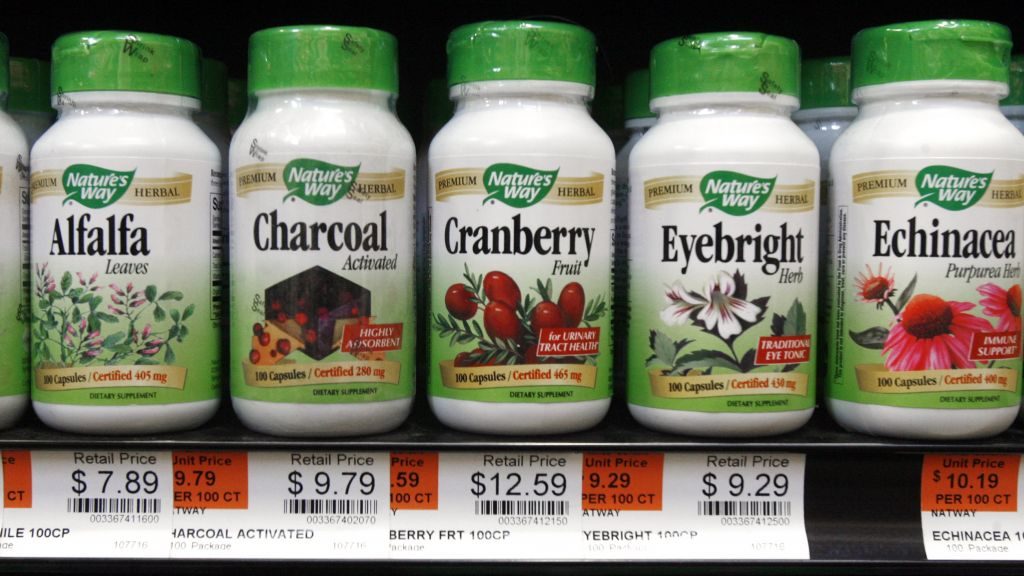 Dietary supplements may seem like harmless health boosters. But while some have proven benefits, many do not. Unlike drugs, dietary supplements are not evaluated or reviewed by FDA for safety and effectiveness, and even “natural” supplements can be risky depending on the medicines you take or the medical conditions you have. In recent years, hundreds of supplements also have been found to be tainted with drugs and other chemicals. Always talk to your doctor before you take a new supplement, and avoid any supplement claiming it’s a “cure.”
Dietary supplements may seem like harmless health boosters. But while some have proven benefits, many do not. Unlike drugs, dietary supplements are not evaluated or reviewed by FDA for safety and effectiveness, and even “natural” supplements can be risky depending on the medicines you take or the medical conditions you have. In recent years, hundreds of supplements also have been found to be tainted with drugs and other chemicals. Always talk to your doctor before you take a new supplement, and avoid any supplement claiming it’s a “cure.”
Dietary supplements include:
- vitamins and minerals
- amino acids
- enzymes
- herbs
- animal extracts
- probiotics
They come in a number of forms, including capsules, liquids, and powders. But while dietary supplements might seem similar to drugs, and some even have drug-like effects, there’s a big difference: Dietary supplements don’t undergo FDA review for safety and effectiveness before they’re sold.
Are Dietary Supplements Safe?
Dietary supplements aren’t always safe or harmless. Even “natural” supplements can be risky for people on certain medicines or with certain medical conditions, and some supplements have been found to be tainted with drugs or other chemicals. See Tainted Products.
Even “traditional remedies” with a long history of use aren’t guaranteed to be safe in all cases.
Substances for which safety concerns have been raised include:
- comfrey
- chaparral
- lobelia
- germander
- aristolochia
- ephedra (ma huang)
- L-tryptophan
- germanium
- magnolia-stephania
- stimulant laxative ingredients, like those found in dieter’s teas
Comfrey, for example, contains certain alkaloids that can cause serious liver damage, and aristolochia can cause kidney failure.
Even some vitamins and minerals, when taken in inappropriate amounts, can cause problems. For example, too much vitamin A can reduce bone mineral density, cause birth defects, and lead to liver damage, according to the National Academy of Sciences.
Always read labels and package inserts and follow product directions. But remember that dietary supplement labels and ingredients aren’t evaluated by FDA before they’re sold. Check with your health care professional — your best and most important source on whether a supplement is safe for you.
For a list of the dietary supplement ingredients for which FDA has issued alerts, visit FDA’s website.
